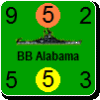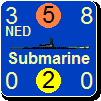bo
Posts: 4176
Joined: 5/1/2009
Status: offline

|
quote:
ORIGINAL: jc4751
While I haven't purchased the game yet (waiting on tax refund), I've been watching the forums, reading up on the AARs and whatnot, and it does seem like the forums are dying. Some will say that this is because people are playing the game and not posting, but I don't think there's much merit to the statement. People like to talk about what they're doing and if they're playing a game, they're going to be talking about it.
Unfortunately, I don't see this game getting the traction it deserves, or needs in order to be a sustained effort, and I think others probably share some of the same concerns:
As a professional dev:
1. One guy coding it. This means that the project is at risk if he gets tired of it or is not able to continue for any reason. Sure, others could take a look at the code base, but, speaking from experience, it's often easier to throw away a code base and start fresh. There is also a lack of design review, sanity checks, and general "what ifs" when taking on a large project like this by yourself. I'm not impugning Steve's skills at all by noting this, only that, objectively speaking, it's an immense project.
2. The technology used -- I believe it's coded in Delphi? That makes me concerned for "future proofing." It's definitely not as widely used as Java, C++, or C#, and also means that anyone potentially helping with the project is going to have to get up to speed with the IDE and language first.
3. Stability -- reading through the bug reports about freezes and showstoppers reminds me of the "whack-a-mole death spiral" that happens when a code base becomes too complex to maintain.
4. Hungarian notation, in at least one code snippet. (yes, that's a joke, not a serious point)
As a gamer:
1. Price point. I understand the "Well, you get X hours of enjoyment out of it." While it's a valid argument, I suppose, $100 is still asking a lot for a computer game. The competition for a strategic WW2 game is considerably cheaper, whatever their merits as games are. I strongly think it was a mistake to argue that the manuals make the price point worthwhile -- it's like saying you have to buy a car with a gold-plated steering wheel, and the price of the car is worth it because of the gold-plated steering wheel. If people don't see the value, they're going to move on, no matter how good it seems.
2. No AI. While this is a forgivable sin for some, and the AI may not be up to the standards of a human player, the fact remains that most people expect this to be a standard feature in a game. I suspect that most people, like myself, are lifelong wargamers and are used to playing solitaire, this is probably becoming a decreasingly acceptable mode of play.
3. The presentation layer looks very dated in comparison to other offerings.
4. There is also the open question of creating a computerized version of a wargame, and I would think a computerized version of squad leader would run into the same sort of issue. Yes, a lot of people have played and enjoyed the board game, but at the end of the day, is the appeal for the game that it gives a good coverage of the subject matter, or that it's a good translation of a previous attempt to cover the subject matter? I think an apt comparison would be a computerized version of Pacific War or War in the Pacific to WitP:AE, or maybe Squad Leader to Steel Panthers, etc.
The positives:
1. WiF is a wargame, Hearts of Iron is a strategy game. While I like HoI, I've been interested in MWiF precisely because of the more wargamey nature of it.
2. There is a solid and well-developed rules set to draw on. This doesn't have the problem of trying to both define a rules set AND the code. People have vetted the design of the game over the years and have come to like it. Unlike ASL, WiF actually seems to lend itself to computerization, because the while real-world action is being simulated in the rules, it's not designed as an alternate means of reflecting reality, but as an abstraction of it. If you want to ponder that a moment, think about the defensive fire rules in ASL vs how they are handled in Close Combat or something. Reading over the AARs, I feel like "Okay, this makes sense and is intuitive."
3. While I have never spoken with Steve, it's obvious that this is not a cash grab on his part, and that he has poured an awful lot of time and effort into it. I would like to think that passion for a project brings a quality to it that isn't typically found in other efforts like the umpteenth "Flappy Bird" clone.
Well, anyway, those are my thoughts on it, and I've tried to be as objective as possible. Like I said, I plan to buy it, partly to support continued development, and partly because it really is unique. However, I'm not exactly optimistic about the future state of the game, and wonder if it would take a reboot of the code base and a larger team at some point to make it be what it should be.
Plus 1, well said.
Bo
|
 Printable Version
Printable Version



















 New Messages
New Messages No New Messages
No New Messages Hot Topic w/ New Messages
Hot Topic w/ New Messages Hot Topic w/o New Messages
Hot Topic w/o New Messages Locked w/ New Messages
Locked w/ New Messages Locked w/o New Messages
Locked w/o New Messages Post New Thread
Post New Thread